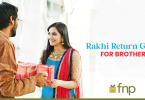Raksha Bandhan, a beloved festival in India, celebrates the enduring bond between siblings with great enthusiasm. This vibrant occasion, also known as Rakhi, is steeped in rich traditions and heartfelt rituals, symbolising love, protection, and familial ties. The festival’s central ritual involves a sister tying a sacred thread on her brother’s wrist, representing her prayers for his well-being and his promise to protect her. As Raksha Bandhan transcends borders and touches hearts worldwide, exploring how this beloved Indian festival is celebrated across different cultures highlights its universal appeal and the seamless way it has woven itself into the global tapestry of traditions.
Raksha Bandhan in India
Ah, India! The birthplace of Raksha Bandhan, where the festival is celebrated with a vibrant mix of customs and traditions. In every corner of this diverse country, Rakhi holds a special place. Sisters prepare meticulously, choosing the perfect Rakhi thread, often adorned with beads, sequins, and intricate designs. On the day of Raksha Bandhan, the ritual begins with sisters performing an aarti (a ceremonial prayer) for their brothers, applying a tikka (vermilion mark) on their foreheads, and tying the sacred thread around their wrists. This thread signifies their love and prayers for their brothers’ well-being and long life. The festival is incomplete without traditional sweets like laddoos, barfis, and jalebis, which add a delightful sweetness to the celebrations. Brothers, in return, shower their sisters with Rakhi Gift hampers and promises of protection. The significance of the Rakhi thread is deeply rooted in Indian culture, symbolising a bond of protection and love that transcends the physical thread itself.

Source: Giphy
Rakhi Celebrations in Nepal
Crossing over to the serene landscapes of Nepal, Raksha Bandhan, known as Janai Purnima, holds its own unique charm. In Nepal, the festival coincides with the Hindu festival of Janai Purnima, where men change their sacred threads (janai) and sisters tie Rakhi threads on their brothers’ wrists. This dual celebration highlights the cultural and spiritual significance of the festival. Nepalese traditions include special rituals and prayers, with families coming together to celebrate. The festival is marked by the preparation of traditional foods like kwati (a mixed bean soup) and special sweets. The act of tying the Rakhi is accompanied by blessings and the exchange of gifts, strengthening the sibling bond. The blend of Raksha Bandhan and Janai Purnima showcases the cultural richness and unity of Nepalese traditions.
Raksha Bandhan in Mauritius
In the beautiful island nation of Mauritius, Raksha Bandhan is celebrated with a delightful fusion of Indian and local traditions. The Indian diaspora, particularly those of Bhojpuri descent, have preserved and adapted the festival, making it a vibrant and inclusive celebration. Mauritian Rakhi celebrations often involve community gatherings where families come together to celebrate. The island’s multicultural fabric is reflected in the festive foods, which include a mix of Indian sweets and local delicacies. Sisters tie Rakhis on their brothers’ wrists, and the joyous atmosphere is filled with laughter, music, and dance. The fusion of traditions creates a unique and colourful celebration that resonates with the spirit of Raksha Bandhan.

Source: Giphy
Rakhi in the United States and Canada
Across the Atlantic, in the bustling cities and serene suburbs of the United States and Canada, Raksha Bandhan has found a cherished place among the Indian diaspora. Here, the festival takes on modern twists while retaining its traditional essence. Indian community centres and cultural associations play a vital role in organising Rakhi events, bringing together families and friends. In these multicultural settings, Rakhi celebrations often include a mix of traditional rituals and contemporary elements. Sisters tie Rakhis on their brothers’ wrists, followed by grand feasts featuring both Indian and Western dishes. The influence of local culture is evident in the gifts exchanged, which may range from traditional Indian items to tech gadgets and trendy accessories. Social media also plays a significant role, with virtual Rakhis and heartfelt messages connecting siblings across miles. This blend of old and new makes the festival extra special, with every brother thoughtfully choosing the perfect Rakhi Gift For Sister to ensure the bond remains strong despite the distance.
Raksha Bandhan in the United Kingdom
In the United Kingdom, Raksha Bandhan is celebrated with great enthusiasm by the British Indian community. The festival has become a beautiful blend of Indian traditions and British culture. British Indians celebrate Rakhi with traditional rituals, yet the influence of British culture adds a unique charm. Sisters tie Rakhis on their brothers’ wrists, often followed by a high tea or a lavish meal that includes both Indian and British delicacies. The popularity of Rakhi has even extended to non-Indians, with friends and colleagues joining in the celebrations, appreciating the festival’s message of love and protection. The fusion of cultures creates a festive atmosphere that bridges the gap between tradition and modernity.

Source: Giphy
Rakhi in Australia and New Zealand
Down under, in Australia and New Zealand, Raksha Bandhan is celebrated with a blend of traditional fervour and contemporary flair. The growing Indian communities in these countries have brought the festival to the forefront, celebrating it with enthusiasm and creativity. Rakhi celebrations in Australia and New Zealand often include community events organised by Indian associations. These events feature cultural performances, traditional foods, and the tying of Rakhis. Social media and virtual celebrations play a significant role, connecting siblings who are miles apart. The festival has also gained popularity among non-Indians, with friends and neighbours joining in the celebrations, making it a multicultural festivity that resonates with the spirit of unity and love.
Raksha Bandhan in the Middle East
In the Middle East, particularly in countries like the UAE and Saudi Arabia, Raksha Bandhan is celebrated with a touch of cultural sensitivity and adaptation. The Indian diaspora in these countries celebrates the festival while respecting local customs and regulations. Community events and gatherings are organised in cities like Dubai and Riyadh, where families come together to celebrate. Sisters tie Rakhis on their brothers’ wrists, and the exchange of gifts and sweets follows. The influence of local customs is evident in the celebrations, with a blend of traditional Indian and Middle Eastern elements. Despite the cultural differences, the essence of Raksha Bandhan remains intact, symbolising the bond of love and protection.

Source: Giphy
Raksha Bandhan is a festival that transcends borders, uniting siblings and communities around the world. From the vibrant streets of India to the serene landscapes of Nepal, and from Mauritius’s multicultural celebrations to the vibrant diaspora in the US, Canada, UK, Australia, New Zealand, and the Middle East, Raksha Bandhan is celebrated with enthusiasm and creativity. The universal themes of love, protection, and familial bonds resonate across cultures, highlighting the enduring power of tradition and cultural exchange. Sisters eagerly waiting to send Rakhis and Raksha Bandhan gifts for brother, the festival becomes a heartfelt reminder of sibling love and care. As we reflect on the diverse ways Rakhi is celebrated globally, we are reminded of the festival’s ability to connect hearts and foster unity. Share your Rakhi experiences and let the spirit of Raksha Bandhan shine brightly, bridging distances and bringing people closer.






